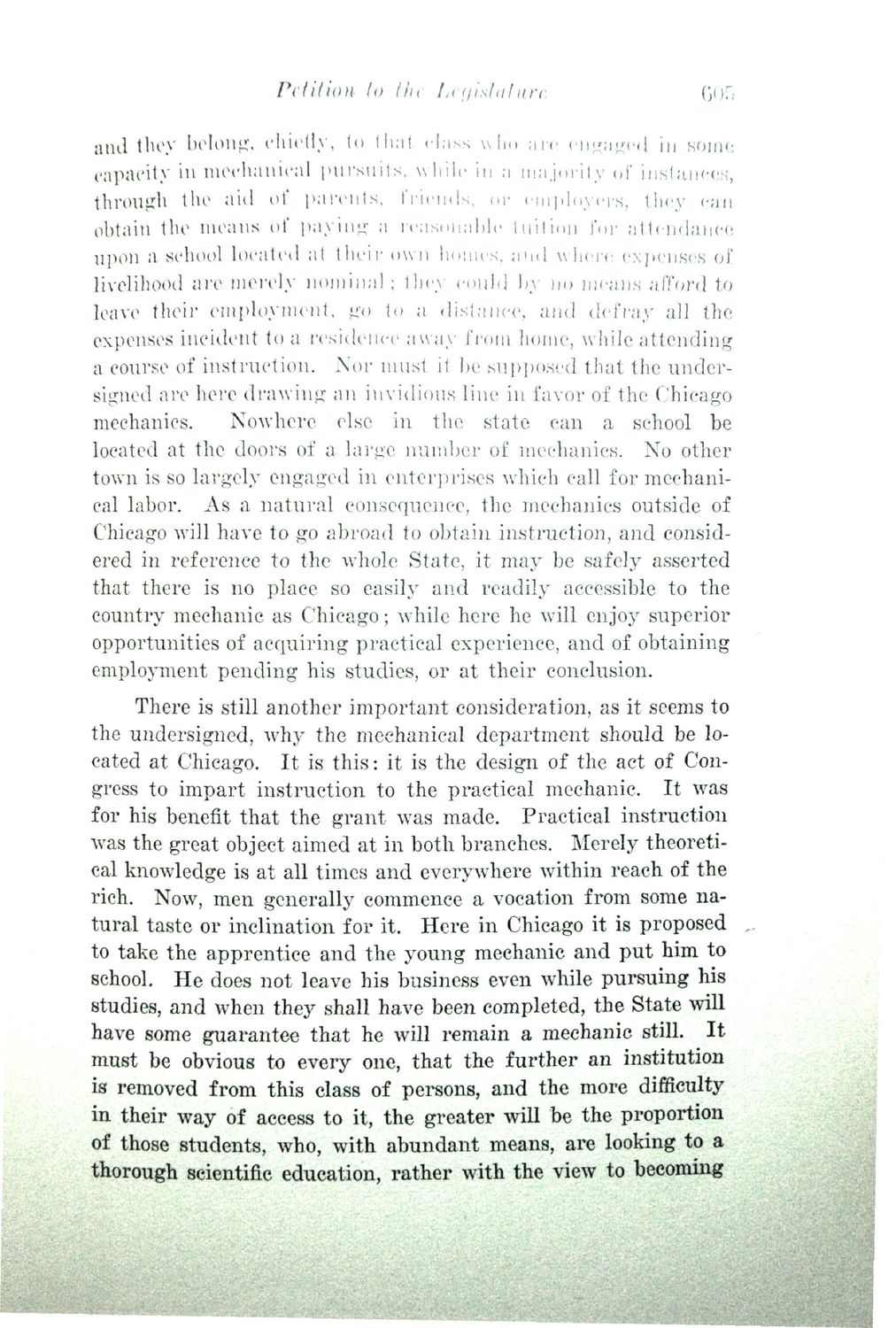| |
| |
Caption: Book - History of the University (Powell)
This is a reduced-resolution page image for fast online browsing.

EXTRACTED TEXT FROM PAGE:
Petition to (he Legislature 605 and they belong, chiefly, to that class who are engaged in some capacity in mechanical pursuits, while in a majority of instances, through the aid of parents, friends, or employers, they can obtain the means of paying a reasonable tuition for attendance upon a school located at their own homes, and where expenses of livelihood are merely nominal; they could by no means afford to leave their employment, go to a distance, and defray all the expenses incident to a residence away from home, while attending a course of instruction. Nor must it be supposed that the undersigned are here drawing an invidious line in favor of the Chicago mechanics. Nowhere else in the state can a school be located at the doors of a large number of mechanics. No other town is so largely engaged in enterprises which call for mechanical labor. As a natural consequence, the mechanics outside of Chicago will have to go abroad to obtain instruction, and considered in reference to the whole State, it may be safely asserted that there is no place so easily and readily accessible to the country mechanic as Chicago; while here he will enjoy superior opportunities of acquiring practical experience, and of obtaining employment pending his studies, or at their conclusion. There is still another important consideration, as it seems to the undersigned, why the mechanical department should be located at Chicago. I t is this: it is the design of the act of Congress to impart instruction to the practical mechanic. It was for his benefit that the grant was made. Practical instruction was the great object aimed at in both branches. Merely theoretical knowledge is at all times and everywhere within reach of the rich. Now, men generally commence a vocation from some natural taste or inclination for it. Here in Chicago it is proposed to take the apprentice and the young mechanic and put him to school. He does not leave his business even while pursuing his studies, and when they shall have been completed, the State will have some guarantee that he will remain a mechanic still. I t must be obvious to every one, that the further an institution is removed from this class of persons, and the more difficulty in their way of access to it, the greater will be the proportion of those students, who, with abundant means, are looking to a thorough scientific education, rather with the view to becoming
| |